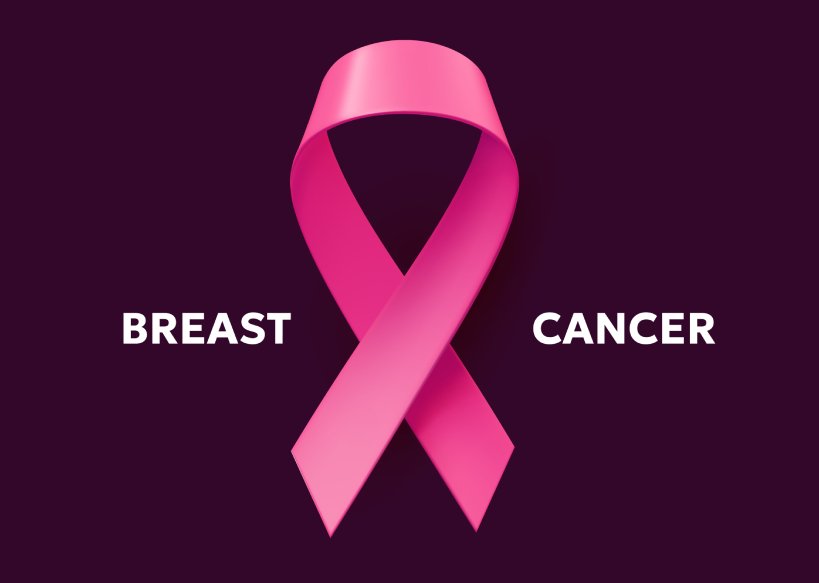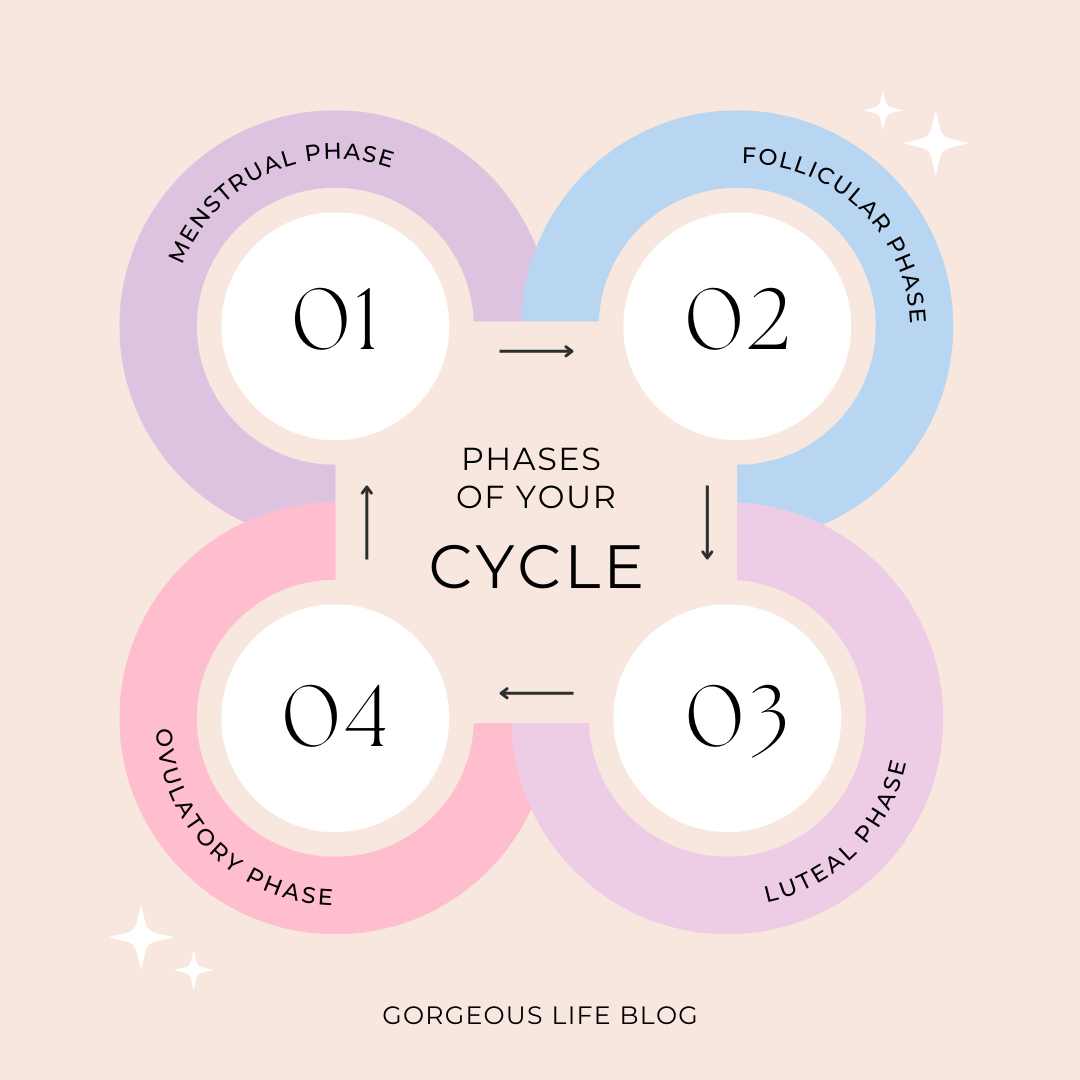Table of Contents
Introduction
Breast cancer is one of the most common cancers diagnosed in women, affecting millions worldwide each year. The impact of breast cancer on a woman’s life is profound and far-reaching, extending beyond the physical toll of the disease. While the diagnosis often starts a journey of treatment and recovery, its effects reverberate into a woman’s social relationships, emotional well-being, and sense of identity. Understanding these effects is crucial not only for those diagnosed but also for families, friends, and communities to provide the necessary support and care.
This blog explores the impact of breast cancer on a woman’s life, focusing on the physical, emotional, and social aspects. We’ll dive deep into how this illness changes a woman’s body, alters her social dynamics, and affects her mental health. By gaining insight into these areas, we can better understand how to navigate life with breast cancer and support those undergoing treatment. For a broader perspective on women’s health, including mental and reproductive well-being, explore our article on Mental Health & Reproductive Health in Women.
If you’re looking for more in-depth information about breast cancer and its effects, trusted organizations such as the American Cancer Society and Breast Cancer Research Foundation offer valuable resources to guide you through the journey of diagnosis, treatment, and recovery.
The Physical Impact of Breast Cancer
Breast cancer treatment involves a combination of therapies, including surgery, chemotherapy, radiation, and sometimes hormone therapy. Each of these treatments has a unique impact on a woman’s body. Below, we break down the physical effects of breast cancer, from the initial diagnosis to long-term recovery.
1. Surgery and Its Effects
Surgery is often the first step in treating breast cancer. Whether a woman undergoes a mastectomy (removal of the breast) or a lumpectomy (removal of the tumor), the physical changes can be significant. Surgical procedures, while necessary, can result in physical and emotional transformations that require time and support to navigate.
- Mastectomy: This surgery, which involves removing one or both breasts, can alter a woman’s physical appearance. The removal of breast tissue is emotionally and physically challenging for many women. Recovery may involve scarring and a change in body image, which can affect confidence and self-esteem. It may also require adjustments in personal and social roles, including how a woman views herself in her relationships and in her sexual identity.
- Lumpectomy: While less invasive than a mastectomy, a lumpectomy still requires removing a portion of the breast tissue, leading to changes in shape and size that might affect how a woman feels about her body. It may be emotionally challenging, but the physical recovery may be quicker compared to a mastectomy.
Both types of surgeries may require follow-up procedures such as reconstructive surgery or the use of prosthetics to help a woman regain a sense of normalcy. These decisions are deeply personal, and finding a support network to assist during this transition is crucial.
2. Chemotherapy and Radiation: The Hidden Battle
Chemotherapy and radiation treatments aim to destroy cancer cells but also cause numerous side effects that affect the body’s overall health. While these treatments are critical for eliminating cancer, the side effects can make the journey of recovery feel like an additional challenge.
- Fatigue: Chemotherapy often results in overwhelming fatigue, making it difficult for women to carry out everyday tasks. This fatigue can persist long after the treatment has ended and is often one of the most debilitating symptoms of cancer treatment.
- Hair Loss: One of the most visible side effects of chemotherapy is hair loss, which can significantly impact a woman’s self-esteem and body image. The emotional toll of seeing hair fall out, combined with feelings of vulnerability, can affect a woman’s mental health. Wearing wigs, scarves, or embracing the shaved head look can be empowering for some women, while others may struggle with this visible sign of the disease.
- Skin and Nail Changes: Radiation therapy can cause skin irritation and pigmentation changes. This can affect how women feel about their appearance, especially since the changes are visible and can alter one’s self-image. Similarly, chemotherapy can affect nails, causing them to become brittle or change color, further impacting a woman’s physical sense of self.
- Lymphedema: This condition, a swelling of the arms or legs, can result from the removal of lymph nodes during surgery or radiation. It can cause discomfort and limit mobility. Managing lymphedema may require physical therapy, compression garments, and other interventions to reduce swelling and improve quality of life.
3. Long-Term Physical Changes
Beyond immediate side effects, breast cancer treatment can cause lasting physical changes that require ongoing management. These include:
- Bone Density Loss: Some chemotherapy drugs can lead to reduced bone density, increasing the risk of fractures. Long-term bone health management, including weight-bearing exercises and supplements, may be recommended to counteract these effects.
- Hormonal Changes: Hormone therapies, such as tamoxifen or aromatase inhibitors, can trigger menopause-like symptoms, including hot flashes, vaginal dryness, and mood swings. Women who are pre-menopausal when diagnosed may face a sudden onset of menopause due to treatment, which can create significant emotional and physical challenges.
- Pain and Numbness: Many women experience chronic pain, numbness, or sensitivity in the treated area, which can affect daily activities and quality of life. Post-surgery pain or neuropathy can make tasks such as driving, cooking, or exercising challenging.
The Social Impact of Breast Cancer
Breast cancer doesn’t just change a woman’s body—it also impacts her relationships and social life. The diagnosis can alter how a woman interacts with family, friends, and colleagues. Here’s a closer look at the social challenges breast cancer survivors often face.
1. Changes in Family Dynamics
The emotional toll of breast cancer can affect family relationships. Partners, children, and extended family members are often forced to adjust to the reality of a loved one undergoing treatment.
- Role Shifts: Women may need extra help at home, which can be a significant shift in family dynamics. Some women might feel guilty for not being able to contribute as much or take on their usual roles. These changes can affect both the woman’s sense of independence and how her family members relate to her.
- Strain on Relationships: For some women, breast cancer strains relationships, particularly romantic ones. Couples might experience difficulty communicating, dealing with the uncertainty of the illness, or coping with fear and anxiety. Relationships may either grow stronger through shared vulnerability or face challenges due to the emotional stress of dealing with the disease.
2. Friendships and Social Life
Breast cancer can lead to social isolation, especially if women feel self-conscious about their appearance due to surgery, hair loss, or weight changes. They might also withdraw from social activities due to fatigue or emotional exhaustion.
- Misunderstandings: Sometimes, friends or acquaintances might not know how to approach a woman with breast cancer. They might avoid her, not wanting to bring up the subject, which can lead to feelings of isolation. Open and honest communication is essential for friends and family to offer the support needed during treatment.
- Support Systems: On the other hand, strong social support from friends and communities can make a big difference. Women who have a solid network of friends and family often report feeling more supported throughout their treatment. Having a network of people who offer emotional and practical support can reduce feelings of loneliness and anxiety.
3. Workplace Challenges
Women with breast cancer may face challenges at work, including adjusting to a new routine, dealing with fatigue, and balancing treatment schedules with job responsibilities.
- Discrimination and Stigma: In some cases, women may fear that their diagnosis could affect their career progression. There may also be concerns about workplace discrimination due to health-related issues. Unfortunately, some women may feel compelled to hide their diagnosis out of fear of stigma or discrimination, which can lead to further stress.
- Supportive Work Environments: However, many workplaces offer accommodations, such as flexible hours or remote work options, that allow women to continue working while undergoing treatment. Supportive environments that recognize the challenges faced by women with breast cancer can play a crucial role in a woman’s recovery.
The Emotional Impact of Breast Cancer
Breast cancer can deeply affect a woman’s mental and emotional health. From the shock of diagnosis to the uncertainty of the future, many women struggle with a range of emotions during their journey.
1. The Psychological Toll of a Cancer Diagnosis
The emotional journey begins the moment a woman receives her diagnosis. The shock and fear of cancer can be overwhelming, and many women experience the following emotions:
- Fear of Death or Recurrence: A diagnosis of breast cancer can bring up fears about mortality or the possibility of the cancer returning in the future. This fear can persist long after treatment ends and may require ongoing emotional support.
- Grief and Loss: Women may grieve the loss of their pre-cancer body or life. This can include mourning the loss of their physical appearance, their previous sense of health, or their pre-diagnosis self. This grief can also extend to changes in relationships, daily routines, and future plans.
2. Coping with the Emotional Rollercoaster
Throughout treatment and recovery, women experience a range of emotions. It’s important to recognize these as normal and find ways to cope.
- Support Groups: Joining a breast cancer support group can provide women with a safe space to talk about their feelings and share experiences with others who understand what they’re going through. These groups offer emotional support, practical advice, and a sense of camaraderie.
- Therapy and Counseling: Psychological counseling can help women work through their fears, sadness, and anxiety. Cognitive-behavioral therapy (CBT) is especially useful in helping women develop strategies for managing stress and negative thoughts. Therapy can provide tools to deal with the emotional toll of the illness.
3. Post-Treatment Mental Health
Even after treatment ends, the emotional journey continues. Women may experience:
- Survivor’s Guilt: Some women feel guilty for surviving when others may not have. This can lead to a complex emotional response, where a woman may feel both relief and sorrow, which can hinder emotional recovery.
- Post-Traumatic Stress: The trauma of the cancer journey can lead to post-traumatic stress disorder (PTSD), with symptoms like flashbacks, anxiety, and insomnia. It’s essential to acknowledge these feelings and seek help if they persist.
Remedies and Precautions for Managing the Impact of Breast Cancer
While the challenges of breast cancer are undeniable, there are several remedies and precautions that can help manage its physical, emotional, and social effects.
1. Remedies for Physical Health
- Exercise: Gentle exercises such as walking, yoga, or swimming can help reduce fatigue, improve mobility, and rebuild strength after surgery or chemotherapy. Exercise also helps maintain bone health, which can be affected by some cancer treatments.
- Diet and Nutrition: Maintaining a balanced diet is crucial during treatment and recovery. Focus on a nutrient-rich diet with plenty of vegetables, fruits, lean proteins, and whole grains. Consulting with a nutritionist may be helpful for creating a diet plan that supports healing and overall health.
- Lymphedema Management: If lymphedema occurs, compression garments and physical therapy can be beneficial in managing swelling and improving mobility.
2. Precautions for Emotional Health
- Seek Mental Health Support: Therapy, counseling, or group support sessions can be invaluable in managing the emotional toll of cancer. Cognitive-behavioral therapy (CBT) and mindfulness-based therapies can help reduce anxiety, depression, and emotional distress.
- Mindfulness and Meditation: Practices like mindfulness meditation, deep breathing, and guided relaxation can help alleviate stress and improve emotional resilience during treatment.
3. Social and Practical Precautions
- Build a Support Network: Whether through family, friends, or support groups, a strong support system is critical in helping women navigate the emotional and social aspects of breast cancer.
- Workplace Accommodations: If you’re working while undergoing treatment, discuss options with your employer for flexible hours or the possibility of remote work to help balance work and recovery.
Recovery and Life After Breast Cancer
While the effects of breast cancer are profound, many women find ways to regain control and rebuild their lives after treatment. This section highlights the road to recovery and the importance of self-care and ongoing support.
Conclusion
Breast cancer has a significant impact on a woman’s life, affecting her physically, emotionally, and socially. The journey through diagnosis, treatment, and recovery is a challenging one, but understanding these impacts helps us provide better support and care. If you or someone you know is going through breast cancer, remember that emotional, physical, and social support is crucial for healing.
Additionally, understanding and maintaining overall breast health is vital for every woman. For more insights on how to take care of your breast health and the key steps to stay proactive, check out our article on The Importance of Breast Health: Key Tips You Need to Know. These tips can help in the prevention of breast-related issues and empower women to stay vigilant about their health.
If you found this post helpful, explore more articles on our blog or leave a comment to share your thoughts or experiences.
External References:
- American Cancer Society – Breast Cancer Overview
- Breast Cancer Research Foundation
- Mayo Clinic – Breast Cancer
Frequently Asked Questions About the Impact of Breast Cancer
1. How does breast cancer affect a woman physically?
- Breast cancer and its treatment, including surgery, chemotherapy, and radiation, can lead to a variety of physical changes. These include changes in body image, hair loss, fatigue, skin irritation, lymphedema (swelling in the arms or legs), and long-term hormonal changes. Some treatments can also affect bone density, leading to a higher risk of fractures.
2. What are the emotional impacts of a breast cancer diagnosis?
- A breast cancer diagnosis can trigger a range of emotions, including fear, grief, anxiety, and a sense of loss. Many women also experience feelings of vulnerability, especially due to changes in appearance and health. Post-treatment, some women may struggle with survivor’s guilt or post-traumatic stress disorder (PTSD).
3. How can breast cancer affect a woman’s relationships?
- Breast cancer can place significant stress on family and social relationships. Changes in daily roles, emotional stress, and the need for support can cause strain in romantic relationships, family dynamics, and friendships. It’s important for women to communicate their needs and lean on a strong support system during treatment.
4. Can breast cancer treatment cause long-term health issues?
- Yes, breast cancer treatments can lead to long-term physical changes. These may include bone density loss, hormonal changes due to treatments like chemotherapy or hormone therapy, and chronic pain or numbness in the treated area. Some women also experience lymphedema, hot flashes, and vaginal dryness from hormone therapy.
5. Is it normal to feel isolated after a breast cancer diagnosis?
- Yes, many women feel isolated due to physical changes, emotional distress, or social withdrawal. The visible changes like hair loss and weight changes can cause feelings of self-consciousness. Joining support groups, reaching out to friends, and talking openly with loved ones can help alleviate these feelings.
6. How can I manage the physical side effects of breast cancer treatment?
- To manage physical side effects, women are encouraged to stay active with gentle exercises like walking or yoga, maintain a nutritious diet, and use therapies such as physical therapy for lymphedema. Consulting with specialists like nutritionists or physical therapists can also help reduce symptoms and support recovery.
7. How does breast cancer affect work life?
- Many women face challenges at work, including fatigue, the need for time off for treatment, and concerns about job security. It’s important to discuss options with employers, such as flexible hours, remote work, or modified duties, to ensure a balance between work and recovery.
8. Can breast cancer treatment cause fertility problems?
- Some treatments for breast cancer, such as chemotherapy or radiation, can affect fertility by damaging the ovaries or altering hormone levels. Women who are concerned about fertility should discuss options like egg preservation with their healthcare provider before starting treatment.
9. How can I maintain emotional well-being during breast cancer treatment?
- Emotional well-being can be supported through therapy, counseling, support groups, and mindfulness practices. Engaging in relaxation techniques like meditation or breathing exercises can also help reduce stress. Connecting with others who understand the journey can provide both emotional and practical support.
10. What are some coping strategies for dealing with post-treatment emotions?
- After treatment, some women experience survivor’s guilt or anxiety about recurrence. Coping strategies include therapy, joining a survivor support group, and engaging in activities that bring joy and relaxation. It’s also important to continue regular health check-ups to monitor for any signs of recurrence.
11. How can I improve my overall breast health after treatment?
- Maintaining a healthy lifestyle through regular physical activity, a balanced diet, and stress management is key to supporting breast health post-treatment. For more information on the importance of breast health and steps you can take to stay proactive, refer to our article on The Importance of Breast Health: Key Tips You Need to Know.
12. Is there any support for workplace discrimination related to breast cancer?
- Yes, women diagnosed with breast cancer may be entitled to legal protections against workplace discrimination under the Americans with Disabilities Act (ADA) and the Family and Medical Leave Act (FMLA). These laws provide protections for medical leave and job accommodations during treatment.
13. Can I still live a full life after breast cancer treatment?
- Yes, many women go on to live healthy, fulfilling lives after breast cancer treatment. It may take time to heal physically and emotionally, but with the right support and care, women can resume normal activities, pursue personal goals, and enjoy life with a renewed sense of strength.
14. How can I help someone who is going through breast cancer treatment?
- Supporting someone with breast cancer involves offering emotional and practical support. This might include helping with household chores, driving them to appointments, or just being there to listen. Respecting their needs and being understanding of their emotions is crucial in making them feel supported.
15. What are some common misconceptions about breast cancer?
- Some common misconceptions include the belief that breast cancer only affects older women, or that a diagnosis always leads to a poor prognosis. In fact, breast cancer can affect women of all ages, and many women survive and thrive after treatment, particularly with early detection and modern treatments.



